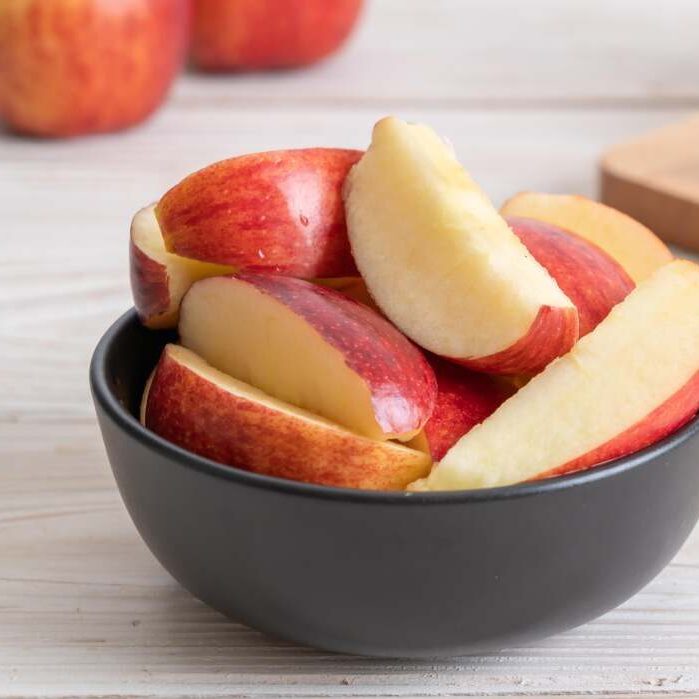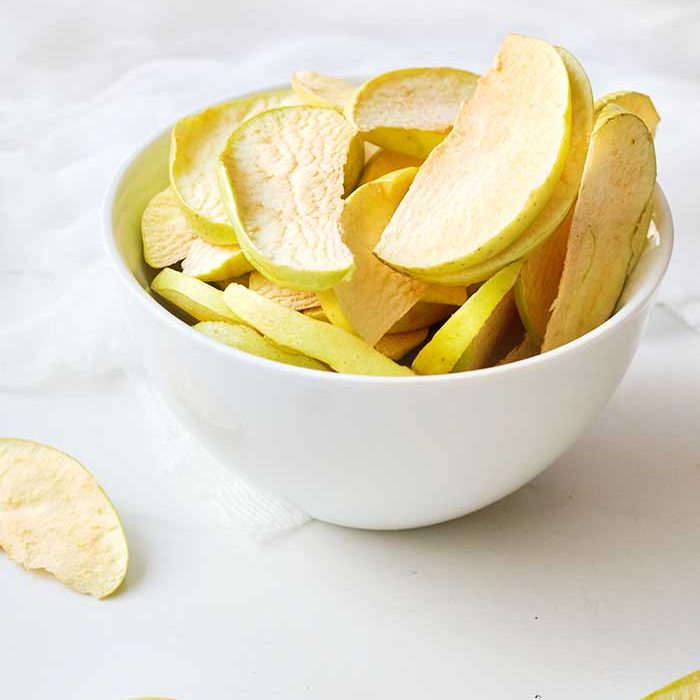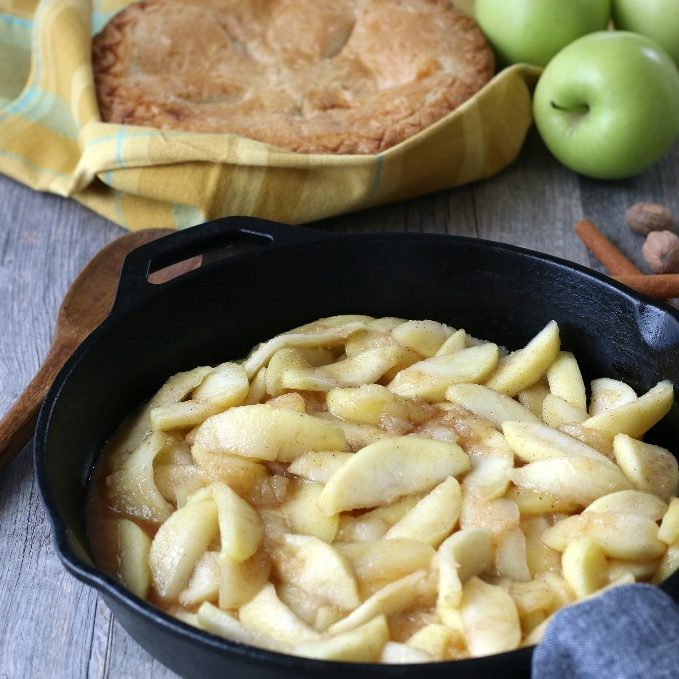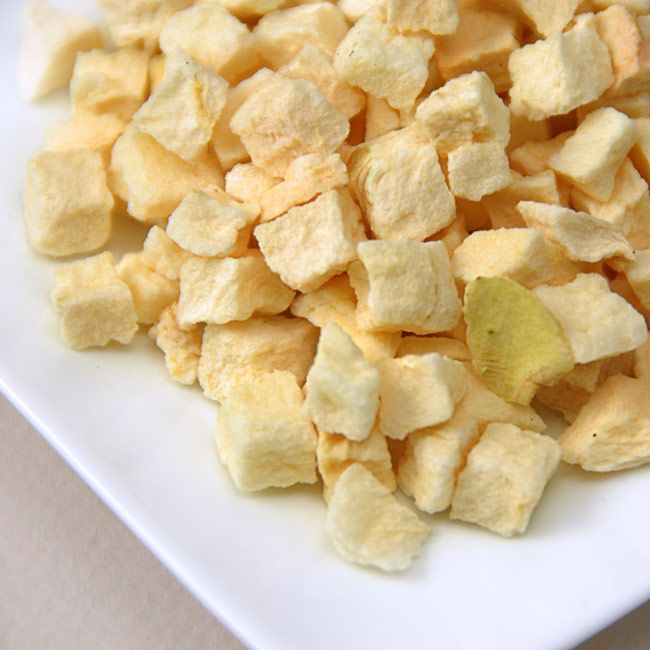Introduction: The Value of Freezing Apples
Apples are a beloved fruit enjoyed in various dishes, snacks, and desserts. However, there may be times when you have an abundance of apples and can’t consume them all immediately. Freezing apples is a great way to reduce waste and preserve their freshness. Properly frozen apples can be used in smoothies, pies, sauces, and more. This article will can you freeze apples explore the benefits of freezing apples, how to prepare them for freezing, and the best ways to store and use frozen apples.
Why Freezing Apples is a Good Idea
Preventing Waste
One of the primary reasons to freeze apples is to prevent waste. When apples are at peak ripeness, they can spoil quickly if not consumed. Freezing allows you to enjoy your apples long after the harvest season. This action can save you money and ensure that you make the most of your purchase.
Many people end up throwing away apples that have gone bad. By freezing them instead, you can conveniently store them for later use. This habit helps to contribute to a more sustainable kitchen.
Nutrient Preservation
Freezing apples helps preserve their nutritional content. Apples are a rich source of vitamins, minerals, and fiber. When frozen promptly after harvesting, they retain a high level of nutrients. This preservation makes frozen apples an excellent choice for maintaining a healthy diet.
Unlike canned fruits, which may lose some nutritional value during processing, freezing locks in the freshness. This means you can enjoy the vitamins and antioxidants found in apples whenever you need them.

Choosing the Right Apples
Types of Apples for Freezing
Not all apples can be frozen successfully. Some varieties hold up better than others. Common types for freezing include Granny Smith, Honeycrisp, and Fuji. These apples maintain their texture well after freezing and are suitable for various recipes.
When selecting apples for freezing, choose firm, fresh apples without blemishes. Avoid overripe or damaged apples, as they may not freeze well. The quality of the apples affects the taste and texture after thawing.
Ripeness and Flavor
Consider the ripeness of your apples before freezing. While they should be ripe enough to eat, overly ripe apples may become mushy once thawed. If you prefer a more tart flavor, Granny Smith apples are excellent, while sweeter varieties like Gala or Fuji can add a pleasant sweetness to your dishes.
Understanding the flavor profile of different apples can help shape your recipes after freezing. Choose varieties that align with your culinary preferences for the best outcomes.
Preparing Apples for Freezing
Washing and Peeling
The first step in preparing apples for freezing is to wash them thoroughly. Use cool water to remove any dirt or pesticide residues. Following this, peel the apples if you prefer them without skin. Peeling can improve texture for certain recipes, but leaving the skin on retains added fiber.
After washing and peeling, core the apples and cut them into slices or chunks. Uniform sizes will help them freeze more evenly. This step ensures easier handling later on when you’re ready to use them.
Treating with Lemon Juice
To prevent browning, a common practice is to treat the apple slices with lemon juice. This antioxidant helps to maintain the apples’ color and freshness. Mix a tablespoon of lemon juice with water and soak the apple pieces for several minutes.
After soaking, drain and pat the apple pieces dry before freezing. This simple step can significantly enhance the appearance of your frozen apples and keep them looking appetizing when you pull them out later.

Freezing Techniques
Flash Freezing
One effective method of freezing apples is flash freezing. Lay the apple slices in a single layer on a baking sheet lined with parchment paper. This method prevents the slices from sticking together, making it easier to portion them later.
Place the baking sheet in the freezer for about 1-2 hours until the apples are frozen solid. Once frozen, transfer them to air-tight freezer bags or containers. Label the bags with the date for easy reference in the future.
Vacuum Sealing
For long-term storage, vacuum sealing is an excellent option. Using a vacuum sealer, you can remove air from the bags, minimizing freezer burn and extending shelf life. After preparing the apple slices, place them in vacuum seal bags and seal according to your machine’s instructions.
Vacuum-sealed apples can often last for up to a year in the freezer without a significant loss in quality. This method is ideal for those who want to store large quantities of apples for later use.
Storing Frozen Apples
Proper Containers
When it comes to storing frozen apples, using appropriate containers is essential. Choose freezer-safe bags or containers designed to withstand low temperatures. Ensure that you leave some space in the bags for expansion during freezing.
Avoid overpacking the containers, as this can lead to spoilage. Proper storage not only keeps the apples fresh but also prevents freezer burn. This practice is crucial for maintaining the flavor and texture of the fruit.
Storing in the Freezer
Place the sealed bags or containers in the freezer, ensuring they are flat to maximize space. Organize your freezer so that the apples are easy to find when you are ready to use them. Keeping an inventory of frozen items helps you use them before they get lost in the back of the freezer.
Regularly check the condition of any stored apples. If you notice any signs of freezer burn or an off smell, it’s best to discard them to maintain your kitchen’s quality.

Using Frozen Apples
Thawing Methods
When you’re ready to use your frozen apples, proper thawing is essential for preserving texture. Consider thawing the apples in the refrigerator overnight for gradual thawing. If you need them more quickly, you can also use a microwave or cook them straight from frozen.
Avoid thawing apples at room temperature, as this can affect their texture. Using a gradual thawing method ensures that the apples remain firm and flavorful, enhancing your recipes.
Recipe Ideas
Frozen apples can be used in numerous ways. They are perfect for baking, such as in pies and crumbles. You can also toss them into oatmeal or yogurt for a delicious breakfast. For smoothies, frozen apples blend well with other fruits to create a refreshing drink.
Moreover, frozen apples can be added to savory dishes like stews or sauces, providing natural sweetness. The versatility of frozen apples allows for creativity in the kitchen, making them a valuable ingredient year-round.
Tips for Successful Freezing
Avoiding Common Mistakes
While freezing apples is relatively straightforward, there are common mistakes to avoid for the best results. One such issue is not ensuring the apples are adequately dried after treating with lemon juice. Excess moisture can lead to ice crystals forming on the apples, negatively affecting their texture when thawed.
Additionally, some people make the mistake of leaving apples in the freezer for too long. While freezing preserves their quality, apples are best used within six months to a year for optimum flavor and texture. Regularly rotating your inventory can help prevent any fruit from staying in the freezer too long. Keeping these tips in mind will ensure that your frozen apples remain delicious and appealing whenever you decide to use them.
Expanding on Storage Solutions
For those who want to take freezing apples a step further, consider employing a combination of storage methods. For instance, if you’re freezing smaller batches, airtight containers can work well for quick access. Label each container not only with the date but also with the type of apple and intended use. This extra note can be a valuable reminder, especially if you’re experimenting with different apple varieties.
Moreover, if you have a large quantity of apples, consider sharing with friends or family. You can organize a fruit-swap day where everyone brings what they have and exchanges apples. This way, you can enjoy a diverse array of apple varieties, all while preventing any from going to waste. Being creative about how and where you store preserved apples can elevate your kitchen experience further.
Conclusion: Embrace the Convenience of Freezing Apples
In conclusion, freezing apples is a practical and beneficial method for preserving this versatile fruit. By following the steps outlined in this article, you can enjoy fresh-tasting apples long after their harvest season. The process not only prevents waste but also retains the nutritional benefits of apples.
Embracing the ability to freeze apples opens up a world of culinary possibilities. From delicious desserts to hearty meals, frozen apples can elevate your cooking. Take full advantage of the convenience of having quality fruits at hand, and enjoy your culinary creations for months to come!


